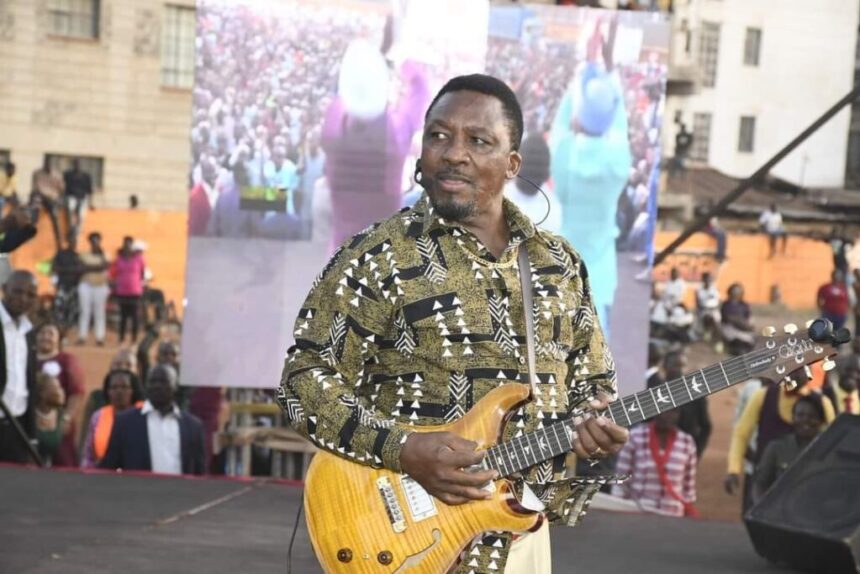In a recent confrontation between religious authority and state oversight, Pastor James Ng’ang’a found himself embroiled in a contentious dispute with the Ethics and Anti-Corruption Commission (EACC) over allegations of land grabbing. With accusations swirling around the purported misappropriation of public land intended for Kenya Railways, Pastor Ng’ang’a took to the pulpit of defiance, daring the commission to challenge him and issuing a warning against any attempts to thwart his endeavors. This clash between faith and governance underscores deeper tensions within Kenya’s societal fabric, raising questions about the balance of power, accountability, and the role of religious figures in public life.
The backdrop to this confrontation revolves around the alleged encroachment upon prime land earmarked for Kenya Railways. According to the EACC, this land, situated at the intersection of Haile Selassie Avenue and Uhuru Highway, is one of five parcels targeted for reclamation. However, Pastor Ng’ang’a vehemently rebuffed these claims, asserting his rightful ownership backed by a title deed dating back to 1980. His defiance was accompanied by a challenge to the EACC, daring them to confront him directly and warning against any attempts to disrupt his affairs.
Pastor Ng’ang’a warns EACC
In a public address that reverberated with defiance, Pastor Ng’ang’a spared no words in lambasting the EACC and questioning their credibility. “EACC should look for their age mates. I am not their age mates. And even if we are age mates, we never went to school together,” he declared. With a blend of sarcasm and indignation, he dismissed the accusations of land grabbing as baseless, pointing to the legitimacy of his title deed and the timeline of its acquisition. His rhetoric, laced with defiance and disdain, underscored a palpable sense of frustration at the perceived encroachment upon his domain.
Furthermore, Pastor Ng’ang’a’s defiance extended beyond mere words, as he issued a stern warning to politicians perceived as adversaries. Implicit in his remarks was a veiled threat of retaliation, suggesting a readiness to confront any challenges to his authority by any means necessary. This assertion of power, coupled with a defiance of external oversight, reflects a broader trend of religious figures asserting their influence in the face of perceived threats to their autonomy.
The clash between Pastor Ng’ang’a and the EACC encapsulates deeper tensions within Kenya’s socio-political landscape, highlighting the complexities of power dynamics and accountability. On one hand, the EACC represents a pillar of governmental authority tasked with combating corruption and upholding the rule of law. On the other hand, Pastor Ng’ang’a embodies the authority of faith, commanding a loyal following and wielding significant influence within his community. This clash of institutions reflects broader struggles for power and legitimacy within Kenyan society, where competing interests vie for dominance and recognition.
Netizens react
The social media reactions to Pastor Ng’ang’a’s defiance underscore the polarizing nature of his actions. While some voiced support for his stance, others expressed skepticism and criticism. The parallels drawn between Pastor Ng’ang’a and other controversial figures serve to highlight the precarious position he occupies within the public imagination. Additionally, as assertions of power and influence collide with allegations of impropriety, the public discourse surrounding Pastor Ng’ang’a reflects deeper anxieties about the intersection of faith, authority, and accountability.
Finally, the confrontation between Pastor Ng’ang’a and the EACC raises profound questions about the nature of power and authority in contemporary Kenya. As religious figures assert their influence in the public sphere, they inevitably come into conflict with established institutions of governance. How these tensions are resolved will have far-reaching implications for the future of democracy, accountability, and the role of religion in shaping society. In the crucible of confrontation, the true test of faith and governance awaits, as Kenya navigates the complexities of its socio-political landscape.














